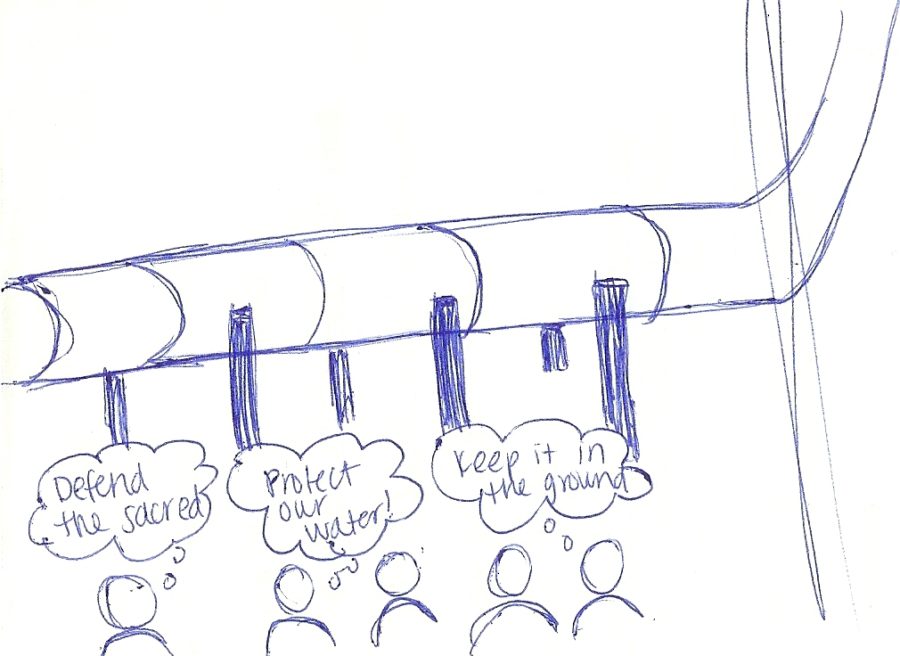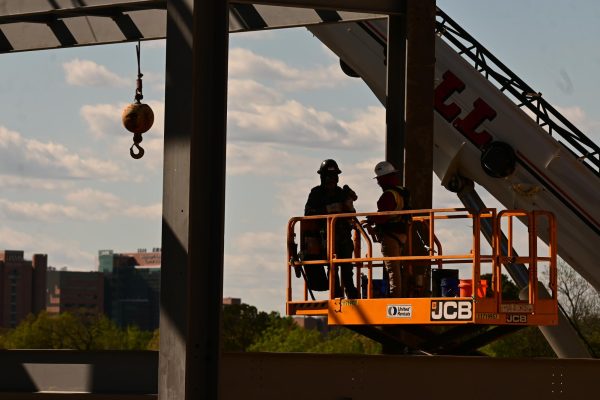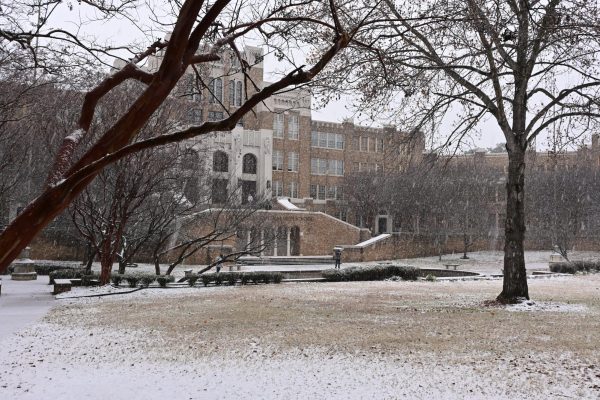The Pipe-Essential Question
illustration by Sydney Gastman
Although the completion of the pipeline may create temporary jobs today, the oil industry is slowly beginning to die out because of the increased use of natural gas, as well as renewable clean energy, such as solar and wind power.
April 3, 2017
Money, Native Americans, the environment, oil, and jobs are all on the line when debating the completion of the Dakota Access Pipeline, a 3.7 billion dollar project to build a 1,172 mile pipeline to transfer shale oil across the Midwest. Completing the Dakota pipeline in its current route is a terrible idea and businesses should abstain from doing so.
Although former President Barack Obama responded to concerns from Native Americans and many other citizens about the Dakota Pipeline by halting its progress through Illinois, newly elected President Donald Trump has other ideas. He recently ordered that the pipeline be completed, stirring up prior concerns.
Trump and other proponents for the completion of the Dakota Access Pipeline argue that once finished, the pipeline will create thousands of temporary construction jobs. This will help the US become more energy-independent because oil companies will not be as dependent of foreign countries for fossil fuels. They also argue that the pipeline will make oil transport from North Dakota to other oil refineries safer because the pipes will be built underground, unexposed to severe weather. Supporters believe that the massive oil transport provided by the pipeline will boost the oil industry in the United States.
However, the pipeline is being built on the sacred land of the Native American Oceti Sakowin tribe. According to the tribe, who filed a lawsuit against the company that approved the project, the US Army Corps of Engineers, the pipeline will disrupt sacred burial sites. The pipeline is planned to run underneath the Missouri River, which provides water for the Sioux tribe and many other Americans as well. If the pipeline should break and go undetected for a long period of time, as it is quite possible with underground pipes, the oil would contaminate drinking water for thousands of people and disrupt wildlife living in and around the river.
Although the completion of the Dakota Access Pipeline may create temporary jobs today, the oil industry is slowly beginning to die out because of the increased use of natural gas, as well as renewable clean energy, such as solar and wind power. If this is the case, that money and energy will have just gone to waste because most of the jobs are only temporary.
If the pipeline is completed, it will encourage the use of more fossil fuels which prolongs the switch over to clean, renewable energy. When completed, the pipeline will carry 470000-570000 barrels of shale oil to the market. Once burned, 101.4 million metric tons of carbon dioxide will be released into the atmosphere annually. This contributes to climate change, which causes severe weather patterns and the destruction of many ecosystems that need a colder environment.
The full impact of the Dakota Pipeline is not 100 percent known. However, it is certain that the government will once again be encroaching on Native American land as they have been doing since the country’s beginning. It is possible that should the pipeline break, it could contaminate the Missouri River, polluting a source of water for humans and animals.
Millions of people suffering don’t seem to matter to Trump and those who want to make a quick buck. The cost of habitat destruction, lack of clean water, and the loss of Native American lands must be a small price to pay.












